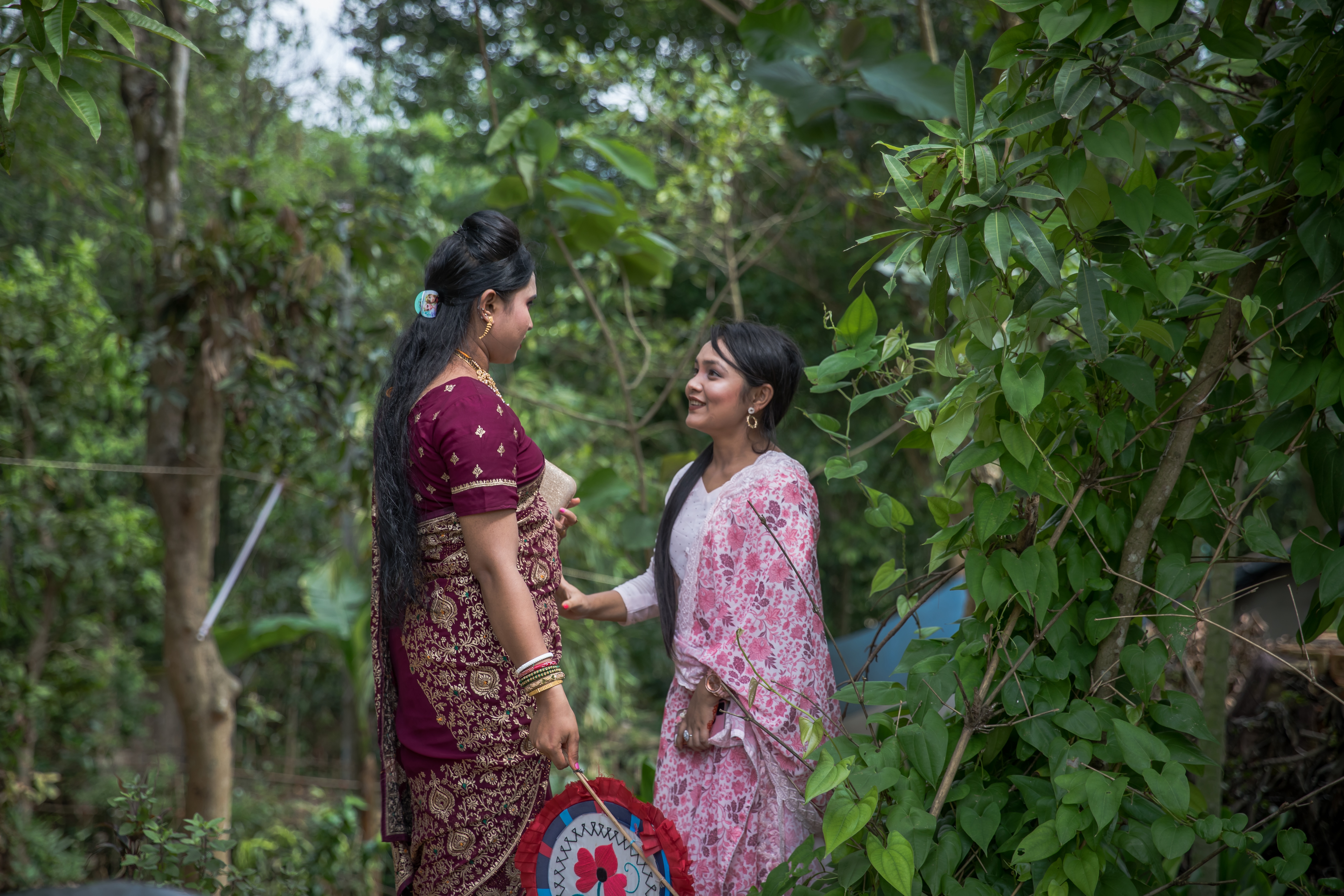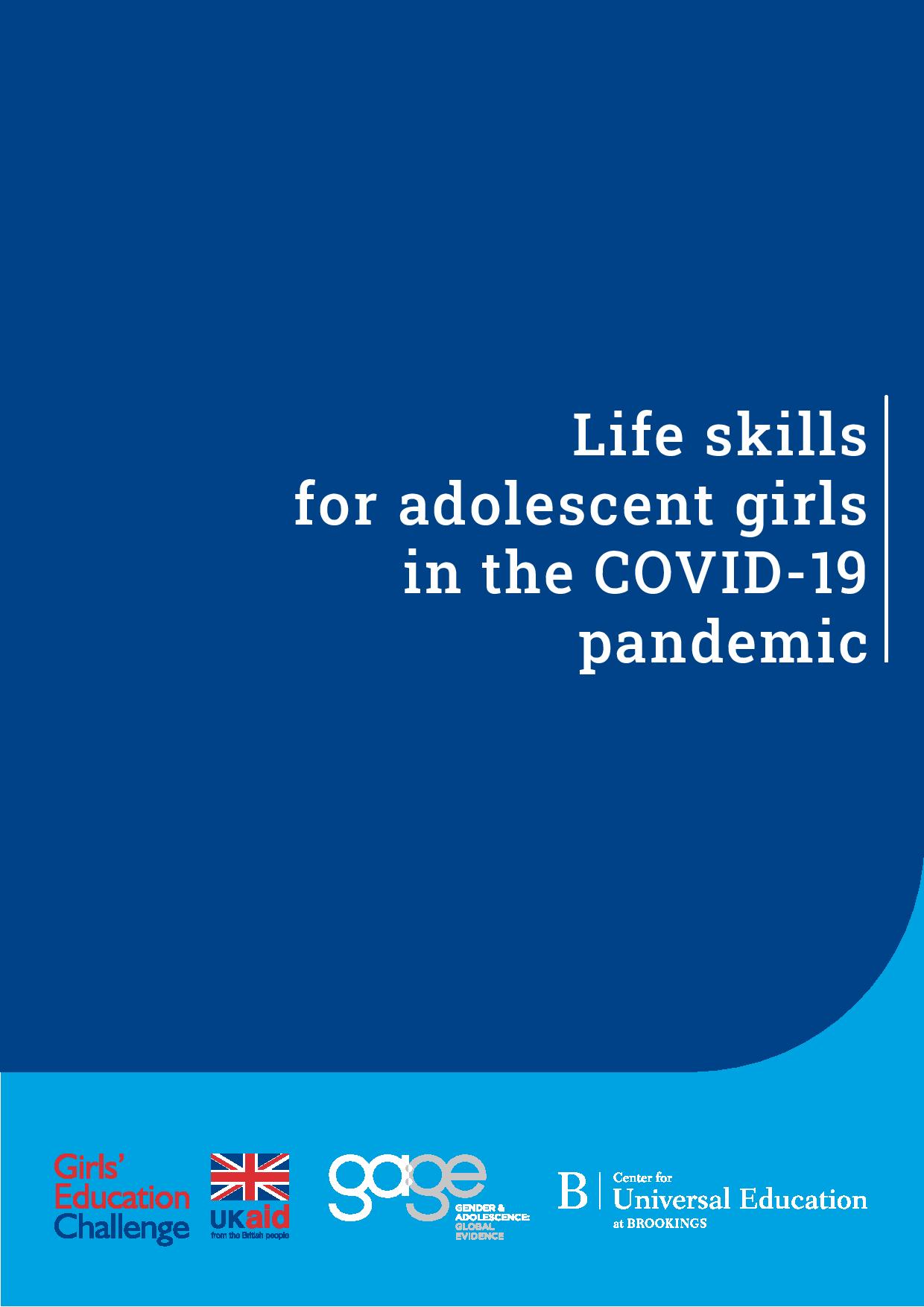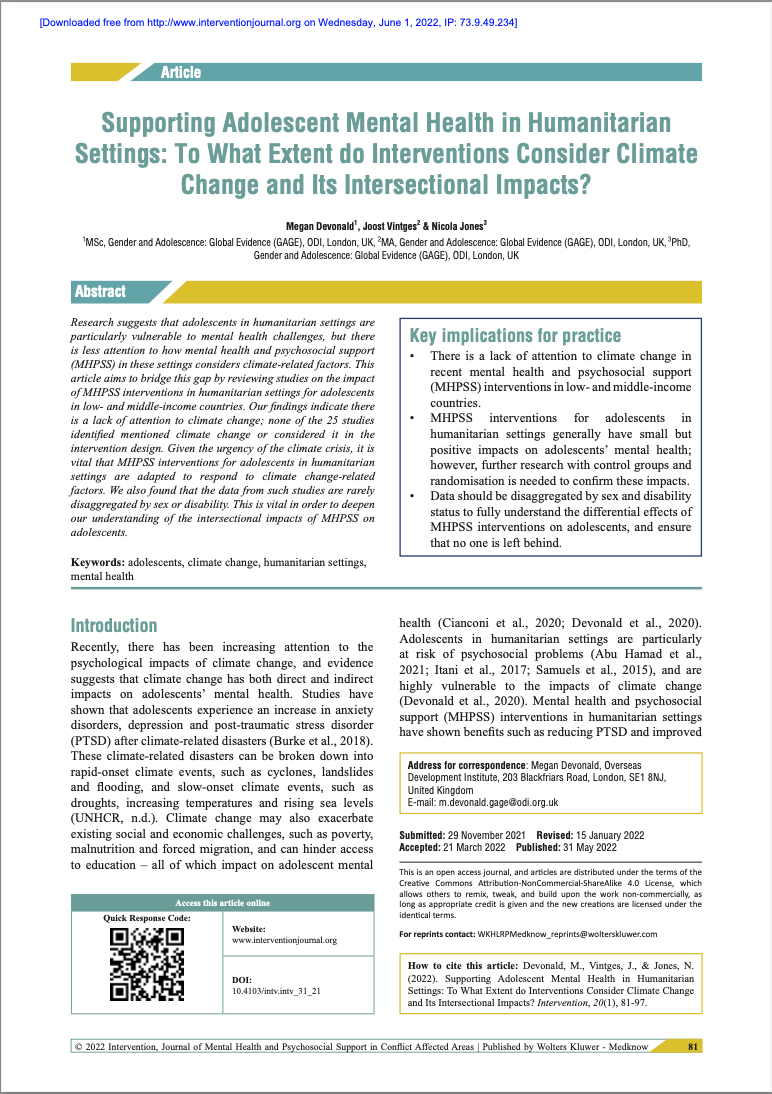
Improving mental health of adolescent girls in low- and middle-income countries: Causal evidence from life skills programming
publication
Improving mental health of adolescent girls in low- and middle-income countries: Causal evidence from life skills programming
17.04.2024 | Cross-Country
Country
Cross-Country
Capability domains
Psychosocial well-being
Audience type
Researcher
Year of publication
2024
Authors
Manisha Shah, Sarah Baird, Benjamin Avuwadah, Jennifer Seager, Joan Hamory, Shwetlena Sabarwal, Amita Vyas
This study provides causal evidence on the impact of life skills programming on the mental health of adolescent girls aged 10–19 in three distinct low and middle-income countries: Tanzania, Bangladesh, and Ethiopia. Life skills interventions significantly improved a component of mental health in all three contexts, with reductions in depression in Tanzania and improvements in socio-emotional development in Bangladesh and Ethiopia. However, findings suggest substantial heterogeneity in impact. Programs that target both adolescent boys and girls appear more effective than those that target girls alone, and existing supportive environments are a necessary condition for programs to improve mental health.
Suggested citation:
Shah, M., Baird, S., Avuwadah, B., Hamory, J., Sabarwal, S. and Vyas, A. (2024) 'Improving Mental Health of Adolescent Girls in Low- and Middle-Income Countries: Causal evidence from life skills programming' Journal of Human Resources 59(S): S317-S364 (https://www.gage.odi.org/publication/improving-mental-health-of-adolescent-girls-in-low-and-middle-income-countries-causal-evidence-from-life-skills-programming/)


